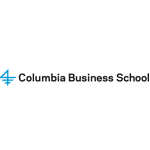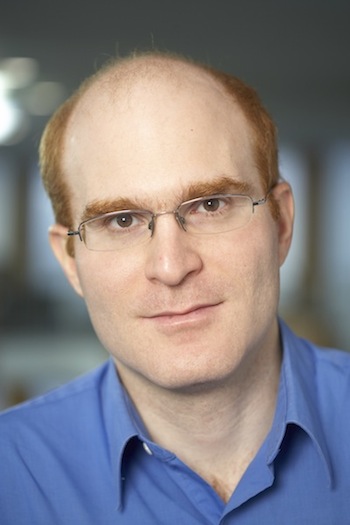Olivier Toubia, Glaubinger Professor of Business, Columbia Business School on Twitter
Marketing professor Olivier Toubia on why people contribute to Twitter for research for graduate school of business
 Social Media Portal (SMP): What is your name and what do you do there at Columbia Business School?
Social Media Portal (SMP): What is your name and what do you do there at Columbia Business School?
Olivier Toubia (OT): Olivier Toubia, Glaubinger Professor of Business, Columbia Business School. I am a marketing professor.
SMP: Briefly, tell us about Columbia Business School (for those that don?t know), what is it and what does the establishment do?OT: It is a graduate school of business.
SMP: You recently released research co-authored with University of Pittsburgh's Assistant Professor Andrew T. Stephen entitled ?Intrinsic versus Image-Related Motivations in Social Media: Why do People Contribute to Twitter??, why did you decide to research this area?OT: I was puzzled by the amount of time and energy that non-commercial users spend creating content on Twitter. These users have no financial incentive to create content. Why do they do it? What is their motivation?
SMP: Who are your target audience for the research and why (how long did it take to do)?OT: Fellow academics in marketing, economics and psychology, managers of social media platforms and managers who are responsible for establishing and executing social media strategies for their companies.
SMP: What were the most surprising results of the research that you couldn?t of imagined (and why)?OT: We conducted an experiment in which we made a set of Twitter users more popular. We created 100 synthetic users (that looked like real users) and have them follow a set of users over time. We could then observe how these users who saw their number of followers increase by 100 over a few weeks behaved, compared to a control group. In other words, we were able to observe how popularity and status changes behaviour on Twitter.
The most surprising result was that for those users who already had a fairly large number of followers before our intervention, becoming more popular made them less active in content creation (i.e., they reduced their posting rate compared to a control group). Those users with a smaller number of initial followers, on the other hand, became relatively more active.
SMP: Why do you think TV-like Twitter is coming?
OT: Our results are consistent with the idea that while the key motivation to post content early in someone?s tenure on Twitter is intrinsic (they post because they enjoy it and they want to share information with others ?therefore they post more as they get more followers); the key motivation later on becomes social or self-promotion (they become increasingly focused on their number of followers and they post in order to earn more followers and advance their stature on the platform ? once they?ve earned enough followers they relax and enjoy the benefits).
In that case, as Twitter becomes more mature and the number of followers becomes static (there are only so many people that one can follow), the motivation to post content in order to attract more followers is reduced (because it is harder to attract more followers), and we should see a reduction in content creation by non-commercial users. Content creation would then be left to commercial users, and non-commercial users would get more value from Twitter by consuming content created by others, as opposed to creating content themselves. We are then left with a more traditional medium in which non-commercial users consume content created by commercial users, like on TV, radio, etc.
SMP: Don?t you think that content-delivery communications effect is already here in terms how everyday people and brands (broadcasters, businesses and publishers etc) use Twitter? If yes, why. If no, why (and when do you think this will happen)?OT: Yes, this transition is already well under way. A couple of years ago, Twitter positioned itself like a real social media platform, designed to let users share information with each other. Today, Twitter explicitly tells new users that they don?t need to post content to get value from Twitter (see https://twitter.com/about). They just want your eyeballs so that they can sell them to advertisers (see for example promoted tweets).
SMP: When this effect arrives, what sort of impact do you think it will have on Twitter, indeed, the commercial and everyday people that use it?OT: I think that Twitter will become most useful to firms either as a customer service channel, or as a media channel. It will become less and less useful as a viral marketing platform or a platform for gaining customer insights.
 SMP: What are the low moments of what you have been doing so far (and in terms of the research)?OT
SMP: What are the low moments of what you have been doing so far (and in terms of the research)?OT: During our experiments, several of our synthetic accounts were shut down by Twitter and had to be re-created.
SMP: What are the high moments of what you have been doing so far (and in terms of the research)?OT: One high moment of course was when the paper was accepted for publication!
SMP: What do you see as the biggest challenges and opportunities for brands and broadcasters that operate in the broadcast space (television) in working with Twitter?OT: One big challenge is figuring out how Twitter complements and substitutes traditional channels. Another challenge is to increase advertising on Twitter without completely destroying its social media flavour and identity.
SMP: Can you see any rivals to Twitter in this space (If yes, what and why? If not, why not)?
OT: Pinterest has shown that visuals are very powerful. One of Twitter?s strengths was to limit messages to 140 characters. Limiting to pictures may be even more powerful.
SMP: What?s the next big step for microblogging, social media / networks and what impact may this have upon brands and businesses (particularly in the broadcast industry)?
OT: One next big step may be to make social media actually social, comfortable, and intimate. I am intrigued by companies like path.com that limit your number of connections. With so many options available, there is actually demand for systems that limit choices and force users to make choices and tradeoffs.
SMP: What?s going to be the most interesting aspect regarding microblogging - including social media / technology for the next 12 to 18-months (why could develop, evolve and have an impact in this space ? the aforementioned ? broadcast / publishing)?
OT: I am curious to see how users will react to promoted tweets, and whether they will accept them.
SMP: What are your top predictions for microblogging social media for the next 12 to 18-months?OT replies with:
? There will be increased demand for social media platforms that impose more constraints and limits on users (e.g., number of messages, connections, recommendations, etc.)
? There will be increased demand for an ?HBO? of social media, i.e., a subscription-based platform with no advertising.
SMP: What are your top tips for brands (businesses, broadcasters and publishers etc) working in the broadcast arena in using Twitter and social media?? Use Twitter either as a media channel, or as a customer service platform.
? Do not use Twitter as a viral marketing platform or a customer insights platform.
? Do not buy followers on Twitter.
? Be careful, by following users on Twitter you may make them less active.
SMP: Best way to contact you and Columbia Business School?OT: Email is the best way. I don?t use Twitter and I cancelled my Facebook account some time ago ☺.
Now some questions for fun
SMP: What did you have for breakfast / lunch?OT: Corn, peaches, yogurt.
SMP: If you weren?t working at the Columbia Business School what would you be doing?OT: Working at another university.
SMP: What are your most favourite Twitter accounts that you follow and why?OT: I personally do not see value in Twitter and I do not use it. You do not need to be a drug addict to study drug addiction?
SMP: What?s next for you to research and why?OT: I want to study if we can use social media, and more generally the vast amount of data available on consumers, to do more than just serve targeted advertising. I think these data may be used to help people learn better, solve problems better, etc.
SMP: When and where did you go on your last holiday?OT: I went to Miami in March.
SMP: What?s the first thing you do when you get into the office of a morning?OT: Check my email.
SMP: If you had a superpower what would it be and why?OT: Read other people?s minds.
If you're interested in doing a Social Media Portal (SMP) interview, get in touch.
